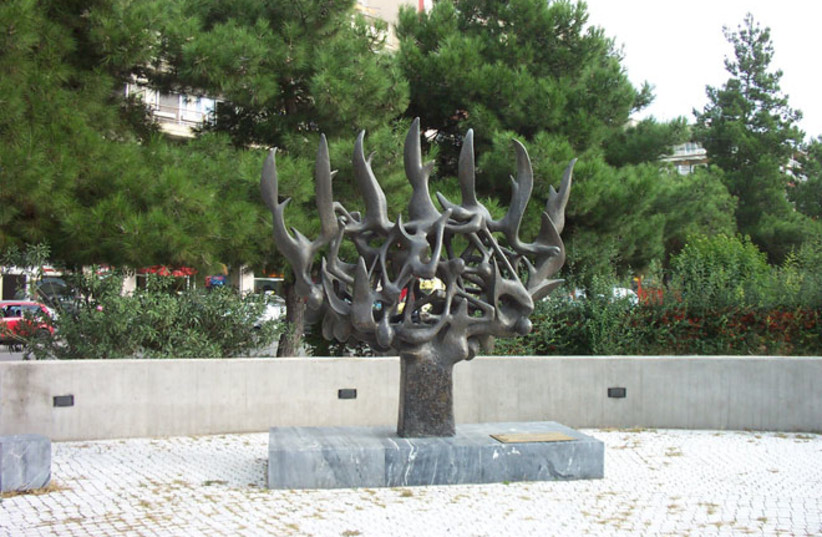Eighty years on, Thessaloniki Holocaust survivor recalls cart of trampled bodies

Eighty-four-year-old Rina Revah from Thessaloniki is one of only 1,950 returned alive.
Eighty-four-year-old Rina Revah was nearly four when she was sent to the Bergen-Belsen concentration camp in northern Germany with her parents in 1943. She would spend the next two years of her childhood there and witness events that would stay with her forever.
"I never had a toy, I never had a doll," Revah said from her home in Thessaloniki, where a thriving Jewish Community once existed for centuries before the second world war.
"The first memories I have of toys are after the war, it was with a girl I had become friends with and we used to play with mud puddles. We would make cookies and patties from mud."
Revah is one of the last survivors of the 50,000 Jews who lived in Thessaloniki before the war, honored every year in ceremonies around March 15, when in 1943 the first train left the city for the concentration camps.
On Sunday, a march was held to the Holocaust memorial in the northern Greek city, and flowers were laid on the train tracks in the station.
In the camp, her mother would leave her in the cot they shared, but Revah would venture outside.
"One day outside the camp I see a huge, deep cart with wooden side panels that was being pulled by horses. Underneath, two workers were throwing naked bodies of workers into the cart," she said.
"At some point the cart overflowed with the bodies, and an officer with long black boots climbed onto it and started to stomp on the bodies in order to make room for more. I don’t know what a four-year-old child understood from such a scene but I remember that I started to cry," she recalls.
She remembers the hunger.
"There was a piece of bread (I would leave) permanently rotting in my mouth, I would never swallow it, and my (dad) would bring me a new piece of bread to replace the old one. I don’t know how I survived, because I truly never ate anything."
Of those deported, only 1,950 returned to Thessaloniki alive, according to the community’s website, including Revah's parents, one set of grandparents, and an uncle. Several of her other relatives were lost. Today, the city's Jewish community numbers some 1,200.
"After the war we never talked about the concentration camp in the house, not at all," said Revah. "It must not be forgotten. I think we owe that to those people who died."
Jerusalem Post Store
`; document.getElementById("linkPremium").innerHTML = cont; var divWithLink = document.getElementById("premium-link"); if (divWithLink !== null && divWithLink !== 'undefined') { divWithLink.style.border = "solid 1px #cb0f3e"; divWithLink.style.textAlign = "center"; divWithLink.style.marginBottom = "15px"; divWithLink.style.marginTop = "15px"; divWithLink.style.width = "100%"; divWithLink.style.backgroundColor = "#122952"; divWithLink.style.color = "#ffffff"; divWithLink.style.lineHeight = "1.5"; } } (function (v, i) { });

